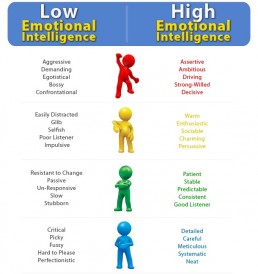MVP Modern Barbers in Canadian Business Franchise Magazine
Take a read of this article about our Franchise Partner Jodi Tucker at our South Surrey location. Jodi worked with MVP Modern Barbers for many years in our Kelowna Franchise before shearing off to the Lower Mainland to open her own Franchise. (see what i did there! haha Shear).
MVP Modern Barbers Article in Canadian Business Franchise
10 Management Lessons from 7-Eleven and Undercover Boss

With our upcoming episode on Be the Boss Canada airing May 1st, we thought we would share some management lessons fromour favorite episode of it’s sister show Undercover Boss. (Pay close attention to #7)
As the largest convenience store chain in the world, we think of 7-Eleven as those bright little stores with drinks and snacks, not a place to gain management insight. Well, with 36,000 stores in 18 countries and over 30,000 employees to support them, the operational and organizational challenges of this unique company are extraordinary. Not only that, but the company’s owned by a Japanese holding company, it’s headquartered in Dallas, and it’s run by a West Point graduate originally from Chicago. Talk about culture clash! That said, the parent company, Seven & I Holdings Co., Ltd., gives chief executive Joe DePinto (pictured) remarkably free reign. Since taking over the top job in 2005, DePinto has introduced and deployed a company-wide cultural shift based on the principals of “Servant Leadership” and “The 7-Eleven Way.”Whatever that means, it seems to be working. As evidence, here are 10 Management Lessons from this week’s Undercover Boss:
- Think synergy. In 1927, Joe C. Thompson, an employee of Southland Ice Company, came up with the idea to sell milk, bread, and eggs from an ice dock he managed. The ice preserved the food and, well, the rest is history. Synergy is fundamental to the 7-Eleven story.
- Continuous improvement is key. DePinto tells his leadership team, “I’ll be focusing on spending time in the field, where the rubber meets the road. I’m going to see what we’re not doing well, and that’s only going to make us better in the long run.” I’m sure Joe knows the Japanese word “kaizen,” which refers to the management principal of continuous improvement.
- A fresh set of eyes can see missed opportunities. In the show, one of the chain’s highest grossing stores had lights that had been out for some time, a potential safety hazard. Maintenance support said it could take up to a month to fix. Question: shouldn’t higher-producing stores get higher priority support?
- Employees can inspire management. Through his hard work, can-do attitude, and passion for the job, Igor, an immigrant from Kazakhstan who drives a distribution truck, actually inspires Joe to be a better executive.
- Many great leaders started at the bottom. DePinto comes from a blue-collar family. After West Point, he worked his way up at PepsiCo. My path was similar. You always hear people complaining about lack of opportunities. I think that’s a load of bull.
- Communications is always a challenge. Far-flung operations and thousands of franchisees compound the challenge of communicating programs and messages across a vast network of stores. During the show, one store routinely trashed day-old bakery items that were supposed to go to charity.
- Replicate what works. One store on Long Island sells more coffee – 2500 cups a day – than any other location. Danny, Joe’s undercover alter ego, learns that the store manager, Delores, knows virtually all her customers by name. Do you know all your customers that well? Delores Undercover Boss Segment
- An army runs on infrastructure and logistics. At West Point, DePinto was trained to ensure that equipment is always working and “mission ready.” Behind the scenes, 7-Eleven’s sprawling distribution and support centers and plants that make enormous amounts of perishable foods are a testament to his operational training.
- There are tricks to doing just about anything. On a donut production line, “Danny” couldn’t keep up with the pace of a conveyor belt until trainer Phil showed him a trick to doing it more efficiently. That’s the case with every task in business, no matter how big and strategic or small and menial.
- Engineers make great executives. DePinto, Larry O’Donnell fromWaste Management, and a healthy percentage of executives from the technology industry all started as engineers, as did I. Sure, I’ve known quite a few dysfunctional ones, but by and large, they make competent executives. Any ideas on why that is?
Emotional Intelligence
 Emotional Intelligence
Emotional Intelligence
Developing strong “people skills”
We probably all know people, either at work or in our personal lives, who are really good listeners. No matter what kind of situation we’re in, they always seem to know just what to say – and how to say it – so that we’re not offended or upset. They’re caring and considerate, and even if we don’t find a solution to our problem, we usually leave feeling more hopeful and optimistic.
We probably also know people who are masters at managing their emotions. They don’t get angry in stressful situations. Instead, they have the ability to look at a problem and calmly find a solution. They’re excellent decision makers, and they know when to trust their intuition. Regardless of their strengths, however, they’re usually willing to look at themselves honestly. They take criticism well, and they know when to use it to improve their performance.
People like this have a high degree of emotional intelligence, or EI. They know themselves very well, and they’re also able to sense the emotional needs of others.
Would you like to be more like this?
As more and more people accept that emotional intelligence is just as important to professional success as technical ability, organizations are increasingly using EI when they hire and promote.
For example, one large cosmetics company recently revised their hiring process for salespeople to choose candidates based on emotional intelligence. The result? Salespeople hired with the new system have sold, on average, $91,000 more than salespeople selected under the old system. There has also been significantly lower staff turnover among the group chosen for their emotional intelligence.
So, what exactly is emotional intelligence, and what can you do to improve yours?
What is Emotional Intelligence?
We all have different personalities, different wants and needs, and different ways of showing our emotions. Navigating through this all takes tact and cleverness – especially if we hope to succeed in life. This is where emotional intelligence becomes important.
Emotional intelligence is the ability to recognize your emotions, understand what they’re telling you, and realize how your emotions affect people around you. Emotional intelligence also involves your perception of others: when you understand how they feel, this allows you to manage relationships more effectively.
People with high emotional intelligence are usually successful in most things they do. Why? Because they’re the ones that others want on their team. When people with high EI send an email, it gets answered. When they need help, they get it. Because they make others feel good, they go through life much more easily than people who are easily angered or upset.
Characteristics of Emotional Intelligence
Daniel Goleman, an American psychologist, developed a framework of five elements that define emotional intelligence:
- Self-Awareness – People with high emotional intelligence are usually very self-aware. They understand their emotions, and because of this, they don’t let their feelings rule them. They’re confident – because they trust their intuition and don’t let their emotions get out of control.They’re also willing to take an honest look at themselves. They know their strengths and weaknesses, and they work on these areas so they can perform better. Many people believe that this self-awareness is the most important part of emotional intelligence.
- Self-Regulation – This is the ability to control emotions and impulses. People who self-regulate typically don’t allow themselves to become too angry or jealous, and they don’t make impulsive, careless decisions. They think before they act. Characteristics of self-regulation are thoughtfulness, comfort with change, integrity, and the ability to say no.
- Motivation – People with a high degree of emotional intelligence are usually motivated. They’re willing to defer immediate results for long-term success. They’re highly productive, love a challenge, and are very effective in whatever they do.
- Empathy – This is perhaps the second-most important element of emotional intelligence. Empathy is the ability to identify with and understand the wants, needs, and viewpoints of those around you. People with empathy are good at recognizing the feelings of others, even when those feelings may not be obvious. As a result, empathetic people are usually excellent at managing relationships, listening, and relating to others. They avoid stereotyping and judging too quickly, and they live their lives in a very open, honest way.
- Social Skills – It’s usually easy to talk to and like people with good social skills, another sign of high emotional intelligence. Those with strong social skills are typically team players. Rather than focus on their own success first, they help others develop and shine. They can manage disputes, are excellent communicators, and are masters at building and maintaining relationships.
As you’ve probably determined, emotional intelligence can be a key to success in your life – especially in your career. The ability to manage people and relationships is very important in all leaders, so developing and using youremotional intelligence can be a good way to show others the leader inside of you.
How to Improve Your Emotional Intelligence
The good news is that emotional intelligence CAN be taught and developed. Many books and tests are available to help you determine your current EI, and identify where you may need to do some work. You can also use these tips:
- Observe how you react to people. Do you rush to judgment before you know all of the facts? Do you stereotype? Look honestly at how you think and interact with other people. Try to put yourself in their place, and be more open and accepting of their perspectives and needs.
- Look at your work environment. Do you seek attention for your accomplishments? Humility can be a wonderful quality, and it doesn’t mean that you’re shy or lack self-confidence. When you practice humility, you say that you know what you did, and you can be quietly confident about it. Give others a chance to shine – put the focus on them, and don’t worry too much about getting praise for yourself.
- Do a self-evaluation. What are your weaknesses? Are you willing to accept that you’re not perfect and that you could work on some areas to make yourself a better person? Have the courage to look at yourself honestly – it can change your life.
- Examine how you react to stressful situations. Do you become upset every time there’s a delay or something doesn’t happen the way you want? Do you blame others or become angry at them, even when it’s not their fault? The ability to stay calm and in control in difficult situations is highly valued – in the business world and outside it. Keep your emotions under control when things go wrong.
- Take responsibility for your actions. If you hurt someone’s feelings, apologize directly – don’t ignore what you did or avoid the person. People are usually more willing to forgive and forget if you make an honest attempt to make things right.
- Examine how your actions will affect others – before you take those actions. If your decision will impact others, put yourself in their place. How will they feel if you do this? Would you want that experience? If you must take the action, how can you help others deal with the effects?
Key Points
Although “regular” intelligence is important to success in life, emotional intelligence is key to relating well to others and achieving your goals. Many people believe that emotional intelligence is at least as important as regular intelligence, and many companies now use EI testing to hire new staff.
Emotional intelligence is an awareness of your actions and feelings – and how they affect those around you. It also means that you value others, listen to their wants and needs, and are able to empathize or identify with them on many different levels.
Trust your instincts
 When you buy a business franchise of any sort you are entering into a business partnership, in which your relationship with the franchisor (or 'principle'), and their people, will be absolutely crucial to your success. You must be able to trust and work with the franchisor and the franchise company's staff - especially the directors and senior managers. If you have the slightest doubt as to the integrity of any of the people within the franchising company think extremely carefully before you go ahead with them. Trust your instincts - if you feel uncomfortable during the selection and recruitment stage it is likely that there are grounds for concern. Feeling uncomfortable about trust and relationships may not necessarily mean that the franchisor is untrustworthy, but it does probably mean that the 'fit' may not be right for you. Relationships are personal things - some people you'll get on with and see eye to eye with; others you may not. You will be more likely to succeed, and receive a good level of appropriate support, if there is a good emotional 'fit' with the franchisor.
When you buy a business franchise of any sort you are entering into a business partnership, in which your relationship with the franchisor (or 'principle'), and their people, will be absolutely crucial to your success. You must be able to trust and work with the franchisor and the franchise company's staff - especially the directors and senior managers. If you have the slightest doubt as to the integrity of any of the people within the franchising company think extremely carefully before you go ahead with them. Trust your instincts - if you feel uncomfortable during the selection and recruitment stage it is likely that there are grounds for concern. Feeling uncomfortable about trust and relationships may not necessarily mean that the franchisor is untrustworthy, but it does probably mean that the 'fit' may not be right for you. Relationships are personal things - some people you'll get on with and see eye to eye with; others you may not. You will be more likely to succeed, and receive a good level of appropriate support, if there is a good emotional 'fit' with the franchisor.
Trust your instincts to tell you whether the franchising company has a similar value system and ethos to your own. If you value the customer above all else, do they too? If they do not then they may not be fully in tune with your style and business philosophy. Finding a good emotional and philosophical match with your chosen franchising company is almost as important as choosing the right sort of business. Given sympathetic and genuinely relevant support we can achieve almost anything - be sure that your franchise partner will be able to provide it.
Choose your Passion and make franchising Fun.
 Buying a franchise that you will enjoy is the most important factor of all. Most businesses – all types of business, not just franchises – succeed when the owner truly enjoys the products and/or services that the business supplies. If you really enjoy and are interested in the products and services, and the customers and markets, then you will learn and gather information and skills rapidly. If you enjoy the business it is likely that you will possess a good deal of knowledge about it already. Being an expert and a specialist at what you do is essential to running any successful business – enjoyment and expertise naturally go hand-in-hand.
Buying a franchise that you will enjoy is the most important factor of all. Most businesses – all types of business, not just franchises – succeed when the owner truly enjoys the products and/or services that the business supplies. If you really enjoy and are interested in the products and services, and the customers and markets, then you will learn and gather information and skills rapidly. If you enjoy the business it is likely that you will possess a good deal of knowledge about it already. Being an expert and a specialist at what you do is essential to running any successful business – enjoyment and expertise naturally go hand-in-hand.
You will find it easy to specialise and become an expert in an area that you enjoy quite simply because it is a pleasure and a joy – not a chore. When you work in a service or product area that you love, you will enthuse about it, and your enthusiasm will be conveyed to your customers and everyone you meet. People like to deal with enthusiastic suppliers – people who love their work. When you enjoy the subject of your franchise business you will naturally put in more effort than if you worked in a field that fails to inspire and excite you. People who love their work always work hard and put in more hours. Their work becomes part of their life, rather than it being just a means to pay for their living costs.
by Rob Hilditch, a.k.a. Joey Franchise
Are you cut out to be a franchisee?
Before buying a franchise, ten important questions need to be carefully and thoughtfully answered:
1. Are you ready to take on the responsibilities of starting and running your own business?
2. Does your family accept your choice and are they ready to support you?
3. Do you like the activity you are considering enough to make a commitment for 5, 10 or 15 years?
4. Do you like dealing with people and are you good at it? – You will have to interact with your customers, your employees, the franchisor and other franchisees.
5. Do you like the franchisor’s staff / those people with whom you will be working?
6. Are you willing to follow the franchisor’s rules and system?
7. Can you afford the franchise?
8. Have you carefully studied the legal documents?
9. Does the franchise you are considering have a track record of success?
10. Are the other franchisees generally happy and successful?
Ensure that you review the Franchisor’s Disclosure Document thoroughly. They should give you one regardless of whether they are required to you in your province or not. That’s just good business on their part. It will include a list of locations and the contact information for those locations. Call a few, and. Or just in the market your looking in. Call Franchise Partners in others parts of the country as well.
Joey’s Franchise Group encourages all of its prospects to reach out to existing Franchise Partners, it’s why call them Partners!
Joey’s Seafood Restaurants | Joey’s Urban | MVP Modern Barbers | Homes & Land Magazine Canada
Look for Integrity in your Franchisor
Look for high integrity propositions and franchisors
High integrity is essential for two crucial reasons:
You will keep your peace of mind, and sleep at night. The world is full of miserable millionaires - people who have exploited others to make their money - don't be seduced by this false dream. Always behaving and deciding with high integrity will keep you safe, well, and probably make you wealthier too.
You will delight your customers and good word will spread, which is vital for local service businesses, which nearly all franchise businesses are. Local businesses live or die by their reputations. Behaving with high integrity will automatically ensure that your reputation shines and grows. Many well established successful franchisees never need to advertise or look for their next customers - their customers find them.
If you buy a franchise that lacks integrity, then with all the best will in the world, you will be pushing water uphill.
Look for and buy a franchise which has high integrity at the centre of its products, services and business ethos, and you are half way to running a high integrity franchise business - all that remains is for you to ensure that your own input and activity are high integrity too.
The Four Way Test
 Everyone has heard of it, everyone has thought of it, but does everyone use it or at least the principals it is derived from?
Everyone has heard of it, everyone has thought of it, but does everyone use it or at least the principals it is derived from?
The test, which has been translated into more than 100 languages, asks the following questions:
Of the things we think, say or do
1. Is it the TRUTH?
2. Is it FAIR to all concerned?
3. Will it build GOODWILL and BETTER FRIENDSHIPS?
4. Will it be BENEFICIAL to all concerned?
Joey’s Franchise Group has used the test in one form or another for many years. It allows us to bring great products and quality to all of our franchise systems. It helps ensure we bring quality Franchise Partners to market and most importantly it has built a level of trust within our community. Over 5o% of our ReFranchise stores are sold to existing staff members. That says a lot about the brand development, not necessarily the growth, but the brand trust that our Partners and their Employes have with us.
When you’re choosing your next franchise, ask them how they implement the Four Way Test.
Rob Hilditch – VP of Business Development
Joey’s Restaurant | Joey’s Urban | MVP Modern Barbers | Homes & Land Magazine Canada
What drives us....our Partners.
“When we work hard towards something we believe in, it’s called passion. When we work hard towards something we don’t believe in, it’s called stress.”, Simon Sinek
What is your Passion? What drives you?
Our Franchise Group is driven by our Passion to see our Franchise Partner’ succeed. Succeed in their businesses and succeed in their personal lives. Each of our Partners is a member of our franchise family.
We try to build this foundation on trust. Trust is a feeling. It is the same feeling for friends or companies. To earn that trust we need to act like our friends would when interacting with our partners.
Our Partners are the reason for it! They are out ‘why’.
Avoiding franchise remorse...
Much like the picture attached, ask yourself, what makes you feel good. The best feeling in the world, is knowing you made the right decision and having no remorse in it.
At Joey’s Franchise Group, we believe in making our Franchise Partners feel good by ensuring they feel happy about their decision to choose one of our Franchise concepts.
Evidence of support tends to nurture trust and builds group resilience. It is typically sought by people in three primary forms:
• Consistent Leadership Behavior
• Regular Feedback
• Adequate Resources
Without sufficient or appropriate forms of support, individuals and the groups they belong to, tend to fuel their own anxiety and stress. This is counterproductive which in turn hampers trust and performance of all kinds.
In business almost any action we take is dependent on support of others, and approval either before or after the fact. In contrast to criticism and complaint, expressions of approval and support do have long shelf-lives.
Our support system of our Franchise Partners is integral to their and our success. It allows them to feel great about their decision.
Rob Hilditch, VP of Business Development
Joey’s Franchise Group – Great Canadian Franchises








